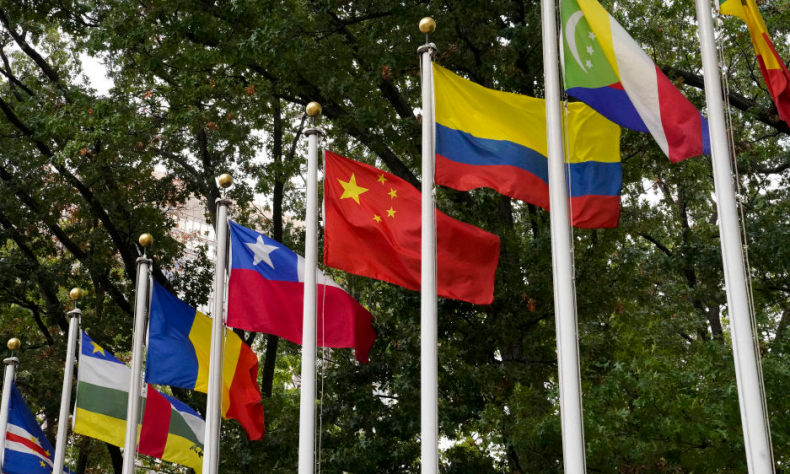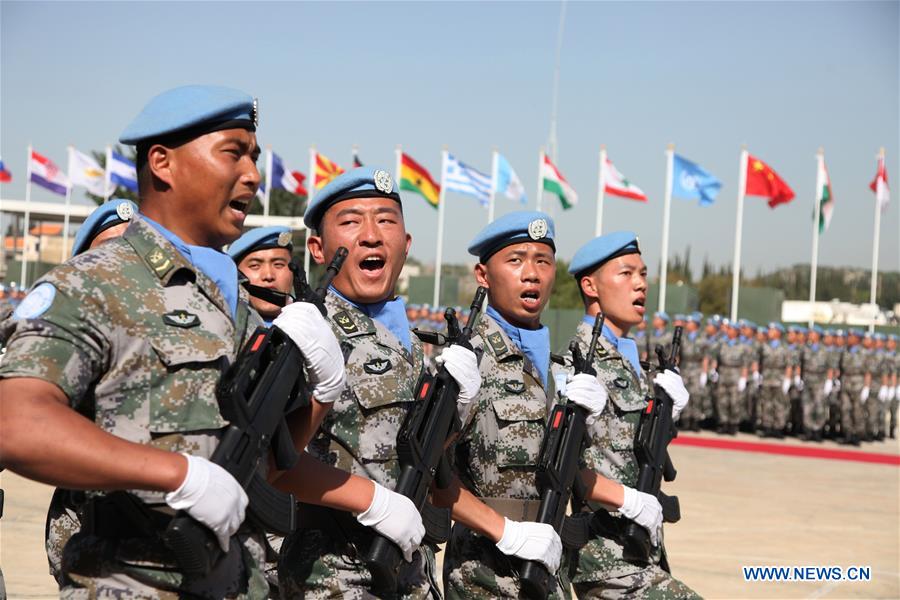The Centenary CPC and a Community with a Shared Future

Combining China’s Five Principles and shared future concepts with traditional Western humanist concepts provides a basis for discussion and common cooperative and constructive action.
The Communist Party of China (CPC) can be proud of a century of successful internal and external struggle for China’s rejuvenation and modernization. Its leadership, its domestic and foreign policies, despite many challenges, led to China’s eminent status today as a major power commanding international respect. The results of a century of dedicated work and action speak for themselves.
A country’s foreign policy can be judged by results benefitting the nation and the interests of its people. Fortunately for China the CPC formulated and conducted a beneficial foreign policy line over the last decades since the emergence of new China in 1949.
Socialism with Chinese characteristics can apply to external policy as it does to internal policy. The CPC and its leadership from the beginning have reflected deeply on Chinese history as well as on lessons learned from bitter experience at the receiving end of Western imperialism.
While foreign policy can and should adjust to the times and to the international situation, it must rest on fundamental principles. Premier Zhou Enlai announced the “Five Principles of Peaceful Coexistence” in 1954 and they were subsequently accepted by the Bandung Conference of Asian and African countries in 1955 in its declarations.
The Five Principles are mutual respect for sovereignty and territorial integrity, mutual non-aggression, non-interference in internal affairs, equality and mutual benefit, peaceful co-existence.
Based on this solid foundation of principles, China proposed in recent years the concept of “a community with a shared destiny for mankind.” This formulation rests not only on the Five Principles of Peaceful Coexistence but also on China’s focus on global governance and the United Nations and international law.
Although Western imperialism became a guiding force over the last five centuries, still Western international law held to some principles involving state sovereignty and non-interference at least among Western powers. In Western diplomacy, the Peace of Augsburg (1555) and the Peace of Westphalia (1648) upheld such principles as a basis for the European states system.
Today, China’s emphasis on the United Nations and international law puts some Western nations to shame not the least of which is the United States with its unbridled hegemonism and disrespect for the UN and international law. To some observers, the US undermines UN processes and avoids traditional international law attempting to replace it with so called alternate “rules and norms.”

China’s concept of a “community with a shared future” can also be translated as “a community with a common destiny”. In either case, the formulation embodies a “win-win” ethos in which there is mutual respect and mutual benefit. Logically, it also embodies the principles of non-interference and peaceful co-existence.
The concept was introduced originally in 2007 at the 17th National Congress of the CPC and referenced the common destiny of Chinese mainland and Taiwan. In 2012 at the 18th National Congress, it was expanded adding the phrase “for all mankind” and thus involved all countries of the international community. The concept envisioned a world of “enduring peace and common prosperity”.
In 2012, Xi Jinping himself developed the concept saying that the international community was progressively becoming a community with a shared future. President Xi then raised the concept in 2013 at the Moscow State Institute of International Relations and then again at the World Economic Forum in Davos in 2017.
The concept was placed into the Chinese Constitution in 2018 at the 13th National People’s Congress of China. The formulation promoted building a community with a shared future and emphasized diplomatic, economic, and cultural relations.
Thus, the concept of a “shared future” or “common destiny” for mankind became an important stated goal of China’s foreign policy. Because the international system is becoming more multipolar, polycentric, and pluralist the world is changing. There is a new emerging correlation of forces while the basic trend of the times calls for peace and development.
So China’s foreign policy orientation and goals are not only keeping pace with a changing world but they are also providing constructive leadership. Of course, mankind seeks a future worth looking forward to rather than a world of endless confrontation and war. China’s vision is realistic and responsive to the changing international situation and calls for international cooperation on pressing issues confronting the international community.
China’s positive formulation of a shared future reinforces the United Nations as it was envisaged by its founders. China’s emphasis on improving global governance through the United Nations processes and through international law is realistic and reflects a growing role for China in international affairs. Continuity with the original spirit of the UN for international consultation and cooperation plus innovation in global governance makes China’s efforts relevant.
China has called for “a new type of international relations”. Strengthening global governance through the UN and through international law is a fundamental aspect of such a task. At the major power level, President Xi put forward the idea of a new type of major power relations so as to promote cooperation rather than confrontation. For the international community, China’s concept of a shared-future links directly to peace and development.

Some Western critics have said that the Chinese concept of a shared future is China-centric. But actually, the Chinese concept entails the values of the international community as embodied in the UN and in international law. China seeks to advance such values in the changing world.
Such Western critics ignore the last several centuries of Western international law and its values of peace, diplomacy, and cooperation. One need only reflect on the great contribution of Western thinkers such as the Dutch humanist and diplomat, Hugo Grotius (1583-1645), the Swiss jurist Emer de Vattel (1714-1767), and the German jurist Samuel von Pufendorf (1632-1694).
China’s call today for a community with a “shared future” based on the Five Principles of Peaceful Coexistence with strengthened UN processes and international law is fully in line with progressive thought in the West over the last several hundred years.
Of course, some Western powers clinging to hegemonism and imperialism reject China’s calls for a community with a “shared future.” But their influence is in decline as are their troubled societies. Their rejection of the United Nations and international law is a dead end for them in today’s changing world.
The international community needs a fresh approach and the elements are already available. Combining China’s Five Principles and “shared future” concepts with traditional Western humanist concepts provides a basis for discussion and common cooperative and constructive action.
At the time of the centenary of the founding of the CPC, its contributions to international relations deserve recognition. Who can ignore the contribution of the CPC to the defeat of Fascism and Japanese Militarism in World War II?
Since World War II, China’s contribution, from the pioneering diplomatic work of Zhou Enlai to the most recent articulation of theory and practice by President Xi Jinping, the record of the CPC and its leaders is a significant contribution to the international community.
The article reflects the author’s opinions, and not necessarily the views of China Focus.
 Facebook
Facebook
 Twitter
Twitter
 Linkedin
Linkedin
 Google +
Google +







